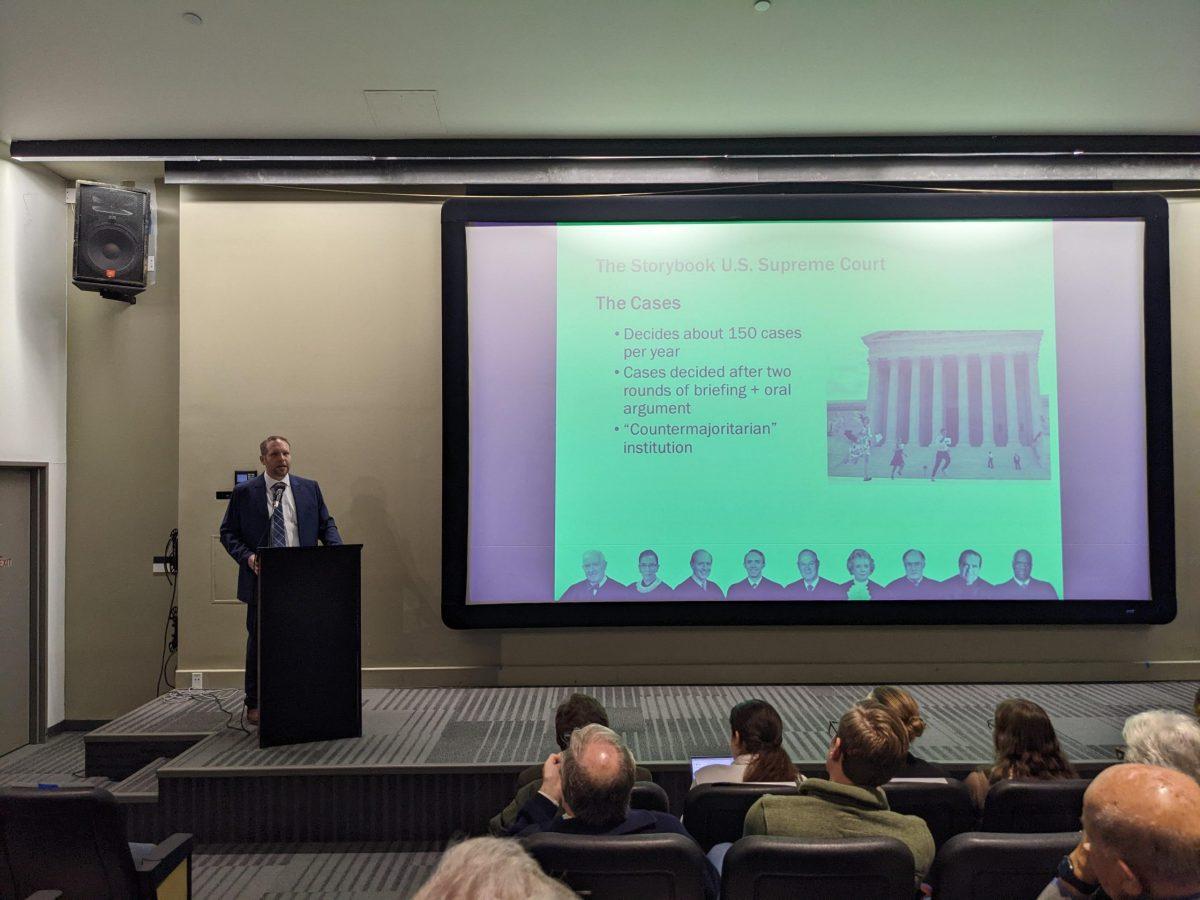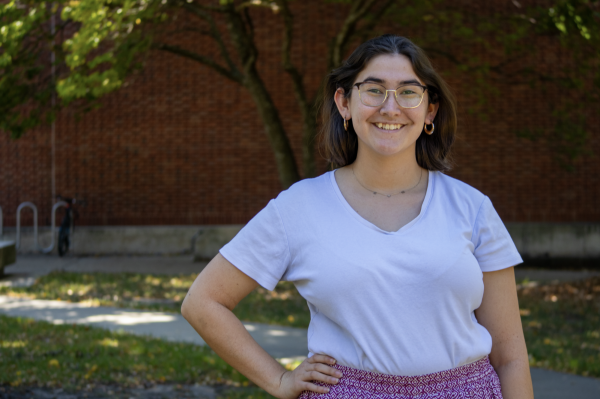Professor Michael Nelson, a Drake alumnus and Penn State professor, visited Drake University last week to talk about the evolution of the Supreme Court.
“We must understand how the court has changed to understand how it works,” Nelson said in his remarks as part of the Sussman Lecture.
The Sussman Lecture is a semesterly talk founded by Drake alumnus Richard Sussman and his late wife Lila. The Harkin Institute hosts this event with the intention of ensuring “citizens are informed and active participants,” per their website.
“Topics for the Sussman lecture are brainstormed by staff at The Harkin Institute and approved by our National Advisory Council,” Lila Johnson said. Johnson is the graphic design specialist at The Harkin Institute and a Drake graduate herself.
She noted it was enjoyable to welcome back a Drake alum for this entry in the lecture series.
“Dr. Nelson did an amazing job giving an overview of the past of the Supreme Court, backed up by history and data from studies,” Johnson said.
Nelson began his lecture by giving a brief history of the Supreme Court, a topic many Americans cover in their high school government class. He explained that although the judicial branch is integral to the checks and balances of our government, very little is written down about its responsibilities.
“Justices themselves have a lot of say in what the court does,” Nelson said.
That’s because the Constitution lists about 350 words about the justice system. Nelson joked that the overview is fewer words than a discussion post on Blackboard.
Nelson went into detail about how recent court decisions are more predictable than they were 50 years ago. He attributes this to presidents understanding the importance of justices’ lifelong appointment.
“Presidential candidates campaign on judicial nominees,” Nelson listed on a slide as part of his lecture presentation.
As three of the last four justice nominations have occurred during conservative administrations, the bench is moving in the conservative direction. Nelson explained that liberal-leaning judges now have to convince two conservative-leaning judges to vote with them, resulting in many of the 6-3 decisions we’ve seen come from the Supreme Court over the last year.
However, Nelson shared that President Biden’s nominees, for all levels of the judicial branch, have been more diverse than any president before him.
He went on to explain that the Supreme Court is “extremely aggressive in choosing which issues it will decide.”
In the span of 30 years, the number of cases the court reviews has been almost cut in half despite the number of cases submitted escalating at a dramatic rate.
In addition, Nelson explained how the Supreme Court has almost quadrupled the use of the “shadow docket,” which allows them to skip the trial process in favor of a majority vote without written arguments.
“[The shadow docket] defies the process for typical cases,” Nelson said.
The shadow docket is meant for emergencies, but the Supreme Court has used it more often for high controversy issues such as abortion, gun violence and voting rights.
Nelson closed with the implications these changes have on our current government and society.
“The Court’s public standing is not great,” he said.
The Supreme Court’s decisions are “increasingly out of step with public opinion,” according to Nelson, and that is frustrating for some. However, “public opinion moves slowly,” so it remains to be seen if the country will see any major changes to the Court in the coming years.
Nelson said Americans must work together to hold the justice system accountable.
“We need to not be afraid to talk to each other,” Nelson said in closing.
Students who attended said they learned much from this event that will influence their future as a citizen.
“Learning about the way our government works helps [me] understand a lot of the decisions they come to,” first-year Morgen Neuhauser said.
Future Sussman Lectures will continue to bring prominent speakers and relevant topics to Drake University.
“It is wonderful to be able to provide these lectures to students and the community,” Johnson said.








